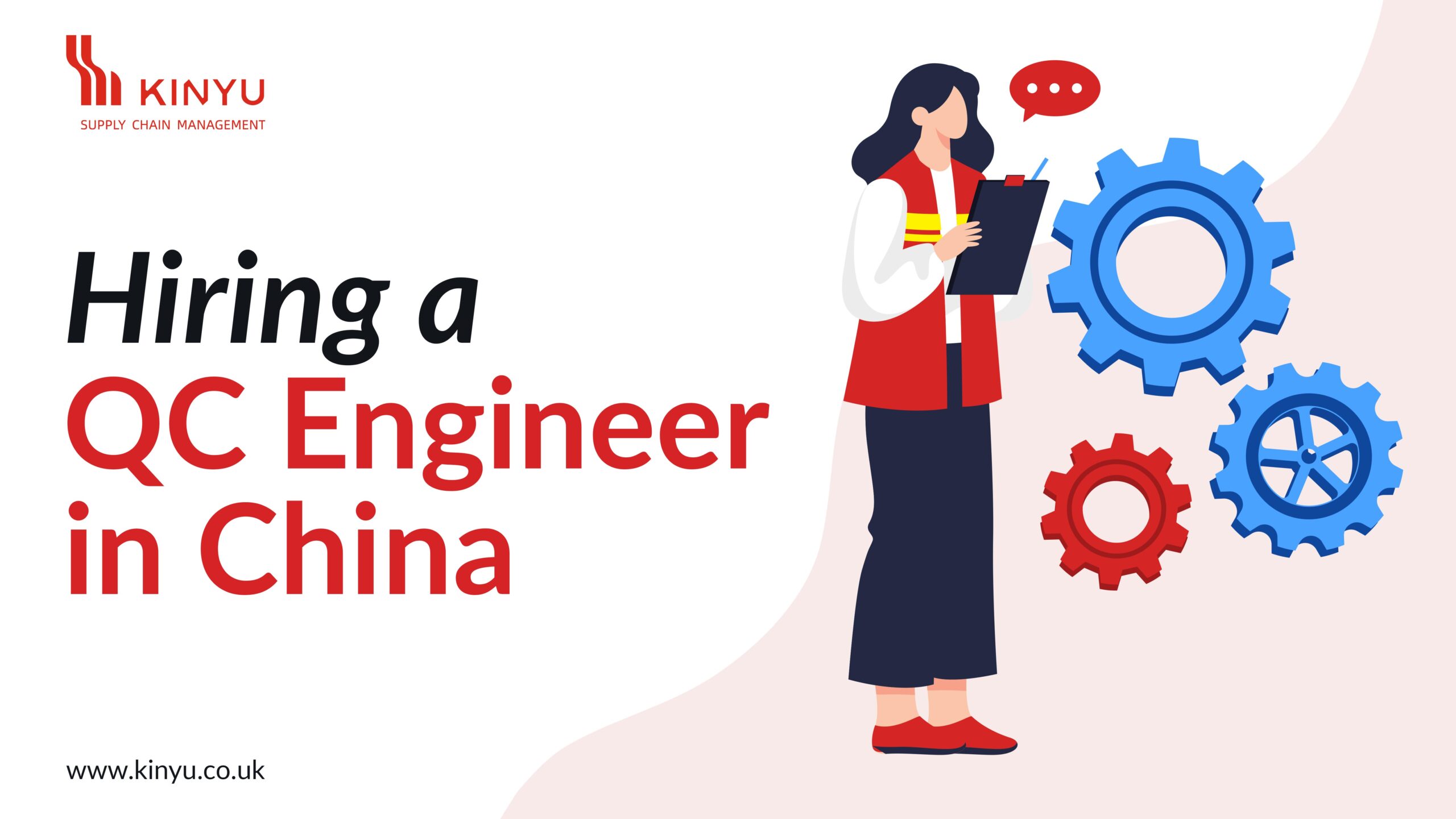In today’s globalized world, China has established itself as a manufacturing powerhouse, producing a wide range of products for export to markets worldwide. The importance of maintaining product quality and consistency makes the role of a Quality Control (QC) engineer vital. This blog will guide you through the process of hiring a QC engineer in China, providing insights into the qualifications, responsibilities, and best practices for recruitment.
The Benefits of an In-House Quality Team
As mentioned in a previous blog, there is a distinct difference between third-party inspection companies and having an internal quality function. The key difference is that third-party inspection companies only report the problem; they do not solve it.
To solve quality problems, understanding the product’s manufacturing process, the factory operation, and then communicating with the factory managers on root cause analysis is essential. A corrective action plan needs to be drafted, followed by a check to ensure that new processes are in place. This can only be done with a dedicated internal quality resource working for you.
Key Responsibilities of a QC Engineer in China
Let’s examine the work you should expect the QC to carry out. A Quality Control engineer is responsible for ensuring that products meet the required quality standards and specifications.
- Inspection and Testing: Conducting inspections and quality tests on raw materials, components, and finished products to identify defects or deviations from standards.
- Quality Assurance: Implementing quality control processes and procedures to prevent defects and maintain consistency in production.
- Documentation: Maintaining detailed records of inspection results, deviations, and corrective actions taken.
- Problem Solving: Identifying the root causes of quality issues and working with production teams to implement corrective and preventive actions.
- Supplier Collaboration: Collaborating with suppliers to improve the quality of incoming materials and components.
- Continuous Improvement: Continuously seeking ways to enhance product quality, reduce defects, and optimize production processes.
Qualifications and Skills
When hiring a QC engineer in China, consider candidates with the following qualifications and skills:
- Education: Many QC engineers hone their skills on the job, making formal education less crucial. However, if there’s potential for the role to evolve into a managerial position, a bachelor’s degree in engineering, quality management or a related field is advisable.
- Technical Knowledge: Proficiency in quality control tools and techniques, statistical analysis, and a familiarity with relevant industry standards and regulations is necessary.
- Communication Skills: Strong verbal and written communication skills are imperative for reporting findings and collaborating with cross-functional teams.
- Attention to Detail: The ability to identify even minor defects and deviations is crucial in maintaining product quality.
- Problem-Solving Abilities: QC engineers should excel in root cause analysis and implementing effective corrective and preventive actions.
- Experience: As noted, prior experience in quality control or a related field is highly valuable, especially within your specific industry.
QC Engineer Recruitment Process
The salary range for a QC engineer is generally lower than that of a managerial position, thus regular job platforms can yield a significant number of applicants. Discover more about job platforms in China on our recruitment blog.
- Define Job Requirements: Clearly outline the qualifications, skills, and responsibilities for the QC engineer position within your organization. If you desire a copy of a QC engineer job description, feel free to request one from our team.
- Screening: Review resumes and conduct initial interviews to shortlist candidates who meet the job requirements. This stage may involve back-and-forth conversations with candidates before in-depth interviews.
- Interview Process: Conduct comprehensive interviews to assess candidates’ problem-solving abilities, communication skills, and cultural fit within your organization.
- Reference Checks: It’s important to check references in this sector. Contact references provided by candidates to verify their work history and performance.
- Offer and Onboarding: Extend a job offer to the selected candidate and facilitate the onboarding process, including training and orientation.
How Much is a QC Engineer’s Monthly Salary?
Salaries for QC roles typically range from 6,000 to 8,000 yuan per month, contingent on experience and English proficiency. Additionally, budgeting for social insurance, which constitutes about 30%, is essential.
Key Points to Consider
- Expense Management: While salaries are relatively low, QC engineers often need to drive to factory sites regularly. Since factories are usually located away from residential areas, QC engineers might be driving 100+ km daily. They tend to use their own cars, so it’s essential to factor in petrol costs, depreciation, maintenance, and toll fees into the mileage. Sometimes, these expenses can equate to their entire post-tax salary!
- Overtime Management: Some factories in China operate seven days a week, and during tight production schedules to meet demand, QC engineers may need to work on weekends for inspections. Seasonal production trends can result in QC engineers being extremely busy during certain periods and less so during others.
It’s crucial to maintain a flexible approach to overtime. This entails communicating the requirements and expectations with your team, applying for a flexible working agreement with the local labor bureau if possible, and providing compensatory leave in lieu of days worked over the weekend. The statutory overtime requirement is to provide double pay for overtime worked if compensatory leave allocation isn’t feasible. Therefore, planning overtime and compensatory leave carefully is important.
To Summarise
Hiring your own Quality Control engineers can be a game-changer for the right business! Nonetheless, preparation for the hiring process is crucial, as is engaging with them on factory issues and time management.
It’s important to note that a QC role is not an office job. While this may seem obvious, managing a QC engineer in China differs significantly from managing someone seated behind a desk. They regularly travel to locations with more occupational hazards, so seeking advice on the appropriate Employers’ Liability Insurance is advisable. As mentioned, the usual expense and overtime arrangements may not suit a QC role well, necessitating a different management approach.
Unsure about how to hire and manage your China team effectively? Contact our team to learn more about The China Desk and how it can benefit you!


![Photo shows the Shenzhen-Zhongshan Bridge under construction. [Ye Zhiwen/South China Morning Post]](https://www.kinyu.co.uk/wp-content/uploads/2024/05/Zhongshan-Shenzhen-Bridge-1024x579.webp)
